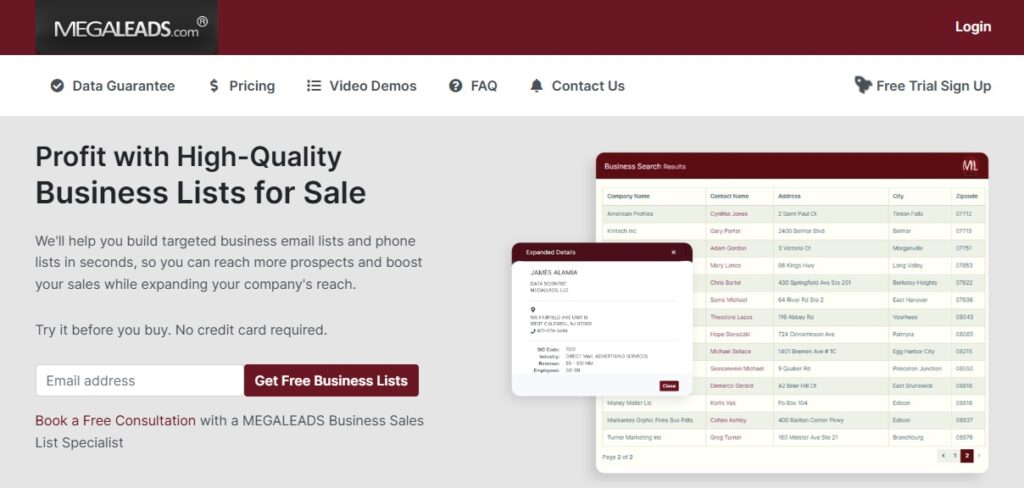Welcome, my little marketing friends and wizards. I’m Jim Alamia, and I’m the Merlin of B2B marketing. I thought it would be great to put this article together to help you make your content more meaningful (it could be a great reference). We’re diving into a topic hotter than a Jersey summer—the impact of AI on B2B marketing ROI. AI isn’t longer a buzzword; it’s revolutionizing how we do business, especially in the B2B sector. Let’s analyze the latest statistics and trends to understand why AI is real.
The Rise of AI in B2B Marketing
AI is taking over B2B marketing, and for good reason. According to a survey by Salesforce, 84% of B2B marketers reported using AI in 2023, up from 29% in 2018. That’s a big move. AI isn’t just the future; it’s the present.
Why AI Matters in B2B Marketing
AI enhances everything from lead generation to customer personalization. A study by Demandbase (an ABM vendor) found that 80% of B2B marketers believe AI has improved their ability to deliver a personalized customer experience. And you know what that means—better engagement means a bigger pipeline and a higher ROI.
Boosting ROI with AI: The Stats
Let’s talk numbers. B2B companies using AI have seen a 30% increase in marketing ROI, according to McKinsey. That’s not a little increase, it a substantial change. Here’s how AI is driving these impressive results:
1. Improved Lead Scoring and Qualification
AI algorithms analyze tons of data to score leads more accurately. Research from Harvard Business Review found that AI-powered lead scoring can increase sales productivity by 40%. That’s like giving your sales team an extra shot of espresso.
2. Enhanced Customer Insights
AI digs deep into customer data, uncovering insights that humans might miss. According to Forrester, companies using AI for customer insights saw a 10-15% increase in sales productivity and a 20% increase in sales close rates. Doing your market research and marketing sizing is critical, and many companies miss the boat. AI helps you with research, so when it comes time to build your list, you have a solid plan. Knowing your customers better means you can serve them better.
3. Personalized Marketing Campaigns
AI allows for hyper-personalization in marketing campaigns. A study by Epsilon revealed that personalized emails generate six times higher transaction rates. When you can tailor your message to each customer, you’re not just talking; you’re connecting.
AI Trends in B2B Marketing
Let’s examine the top AI trends and how they shape the future of B2B marketing from an awareness and consideration perspective.
AI-Driven Content Creation
AI tools like Jasper and Copy.ai are creating content that resonates with audiences. According to Gartner, AI-driven content can reduce production costs by 20%. That’s more bang for your buck, people.
Predictive Analytics
Predictive analytics is another game-changer. It helps marketers forecast trends and customer behaviors. A report by MarketsandMarkets projects that the predictive analytics market will grow from $7.3 billion in 2019 to $23.9 billion by 2025. That’s a lot of growth, folks.
Chatbots and Virtual Assistants
Chatbots are no longer just for customer service. They’re now a crucial part of the marketing strategy. Juniper Research estimates that chatbots will save businesses $8 billion annually by 2022. They handle customer queries, qualify leads, and even schedule meetings—talk about efficiency.
AI-Powered ABM (Account-Based Marketing)
AI is significantly boosting account-based marketing (ABM). A study by ITSMA showed that 87% of ABM marketers report that it delivers higher ROI than other marketing activities. AI helps identify target accounts and personalize outreach, making ABM more effective.
Challenges of Implementing AI in B2B Marketing
Of course, AI technology is not the end-all. Implementing AI comes with challenges, but think about how the tool can help you save time and money. Use it to your advantage. It’s like having a really smart assistant; you must ask it the right questions and focus, my friend.
Data Privacy Concerns
With AI, data privacy is a significant concern. According to a survey by Deloitte, 62% of consumers are concerned about how companies use their data. To win, B2B marketers need to ensure they are transparent and compliant with data regulations and have a well-thought-out marketing plan.
Integration with Existing Systems
Integrating AI with existing systems can be tricky. A report by PwC found that 54% of companies struggle with AI integration. It requires investment in infrastructure and training, but the payoff is worth it.
See You In the Future: Or See You Now
So there you have it, folks. AI transforms B2B marketing in ways we couldn’t have imagined a decade ago. From improved lead scoring to personalized marketing campaigns, AI drives higher ROI and reshapes the landscape. If you’re not on the AI train yet, it’s time to hop on. The future of B2B marketing is here, powered by AI.
Remember, in the words of a wise Jersey native: “If you’re not moving forward, you’re falling behind.” So, embrace AI and watch your marketing ROI soar.
Get your Megaleads Free Trial right now.
